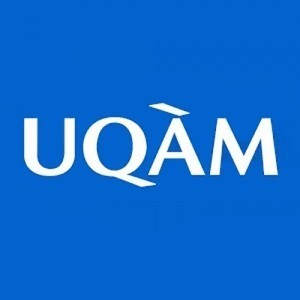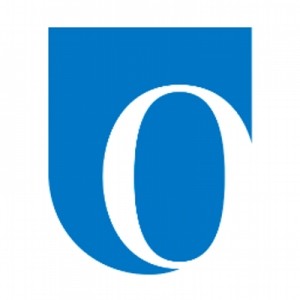Photos of university / #uqam
The Urbanism program at the University of Quebec in Montreal offers students a comprehensive education designed to equip them with the skills and knowledge necessary to effectively plan, design, and manage urban environments. This interdisciplinary program combines theoretical foundations with practical applications, preparing graduates to address the complex challenges faced by modern cities. Throughout the program, students explore various aspects of urban development, including sustainable planning, spatial analysis, transportation systems, environmental considerations, and social equity. The curriculum emphasizes critical thinking and problem-solving skills, encouraging students to develop innovative solutions that promote sustainable and resilient urban spaces. Students benefit from a blend of classroom instruction, hands-on projects, fieldwork, and internships, providing real-world experience and professional networking opportunities. The program also emphasizes the importance of community engagement and participatory planning processes, ensuring that future urbanists are capable of fostering inclusive and vibrant neighborhoods. Graduates from the Urbanism program are well-prepared for careers in urban planning agencies, consulting firms, government departments, non-profit organizations, and private sector development projects. They play a vital role in shaping cities that are livable, functional, and environmentally sustainable, aligning urban growth with social and economic needs. The program reflects the university’s commitment to innovation and excellence in education, fostering a new generation of urban professionals dedicated to creating better cities for all inhabitants.
The Urbanism program at the University of Quebec in Montreal offers a comprehensive curriculum designed to prepare students for the complex challenges of planning and developing sustainable urban environments. This program emphasizes the multidimensional nature of urban spaces, integrating principles from architecture, planning, environmental sciences, and social studies to foster holistic solutions for contemporary urban issues. Throughout their studies, students engage in both theoretical foundations and practical applications, including urban design, transportation planning, land use management, and community development. The program aims to equip graduates with the analytical skills necessary to assess urban systems critically and the creative capabilities to propose innovative interventions that promote social equity, environmental sustainability, and economic vitality. Coursework covers a broad range of topics such as urban history, policy analysis, geographic information systems (GIS), and participatory planning methods, ensuring students gain a well-rounded understanding of the various factors influencing urban development. Practical experience is highly emphasized, with opportunities for internships, collaborative projects with local municipalities, and fieldwork that connects theoretical knowledge to real-world scenarios. Graduates of this program are prepared to work in various sectors, including city planning departments, consulting firms, non-profit organizations, and governmental agencies, where they can contribute to designing resilient and inclusive urban spaces. The program fosters critical thinking, problem-solving, and communication skills, essential for effective leadership in the field of urbanism. With a strong focus on sustainable development and social responsibility, the Urbanism program at the University of Quebec in Montreal aims to develop professionals capable of shaping vibrant, sustainable, and livable cities for the future.
The Urbanism program at the University of Quebec in Montreal (UQAM) requires prospective students to have a completed secondary education or its equivalent to be eligible for admission. Applicants must submit a completed application form along with academic transcripts, which demonstrate their previous academic achievements. Prior knowledge or background in geography, architecture, or environmental studies can be advantageous but is not mandatory. The program emphasizes a multidisciplinary approach, integrating principles from urban planning, architecture, environmental sciences, and social sciences to prepare students for careers in urban development and planning.
Prospective students are encouraged to provide a statement of interest or motivation letter explaining their reasons for pursuing a degree in Urbanism, their career aspirations, and how the program aligns with their goals. Although proficiency in French is not necessarily required for admission, since the university offers courses primarily in French, proficiency in French is highly recommended for successful participation in coursework and internships.
The curriculum involves core courses covering topics such as urban planning principles, sustainable development, spatial analysis, land use management, urban design, and public policy. Students are also required to complete a series of practical training placements and a final thesis or research project, which demonstrates their ability to apply theoretical knowledge to real-world urban issues. The program maintains collaborations with municipal authorities, urban developers, and community organizations to facilitate internships and practical experiences.
Students must also meet the university’s general education requirements, which include proficiency in research methods, ethical considerations in urban planning, and effective communication skills. The program encourages active participation in seminars, workshops, and conferences to stay informed on current trends and challenges in urbanism. Graduates of the program are expected to have strong analytical, technical, and communication skills to contribute to sustainable and inclusive urban environments.
Admission criteria may include specific prerequisites depending on the applicant's educational background. International students must provide proof of language proficiency, typically through standardized tests such as TOEFL or DELF, if courses are offered in French. The program’s duration is generally three years for full-time students, with options for part-time study under certain conditions. Overall, the Urbanism program aims to prepare students for a variety of professions in urban planning, policy development, real estate development, and community engagement, equipping them with the knowledge and skills necessary to address contemporary urban challenges.
The Bachelor of Urbanism at the University of Quebec in Montreal offers a range of financing options to support students throughout their studies. Students are encouraged to explore various financial aid programs, including government grants, scholarships, and student loans. The Quebec government provides several scholarship programs aimed at promoting higher education accessibility, notably the Quebec Merit Scholarship Program and the Quebec Student Assistance Program, which offers loans and bursaries based on financial need and academic performance. Additionally, the university itself administers internal scholarships and bursaries for outstanding students, which are awarded based on academic achievement, community involvement, and other criteria. International students may also be eligible for specific scholarships or financial support programs, depending on their country of origin and individual circumstances.
Students are advised to consult the university's financial aid office to obtain detailed information about eligibility requirements, application procedures, and deadlines for various funding options. Furthermore, part-time employment opportunities are available on campus and in the surrounding community, allowing students to earn income while balancing their academic commitments. The university may partner with local municipalities and organizations to facilitate internships and cooperative education placements that include stipends, providing both practical experience and financial support. Many students also consider external funding sources such as private scholarships offered by foundations, corporations, and professional associations related to urban planning and development fields.
Financial planning is an important aspect of university life, and students are encouraged to create a comprehensive budget and explore all available resources early in their studies. The university’s financial services provide guidance on student loans, debt management, and tuition payment options. It is essential for prospective students to research and apply for funding well in advance, as competition for scholarships and grants can be intense. Overall, the University of Quebec in Montreal offers a supportive environment with multiple pathways for students to finance their urbanism degree and focus on their academic and professional goals.
The Urbanism program at the University of Quebec in Montreal (UQAM) is designed to provide students with a comprehensive understanding of the development and management of urban environments. This program combines theoretical knowledge with practical skills, preparing graduates to address complex issues related to city planning, sustainable development, transportation, environmental impact, and social equity. Students learn about urban design, geographic information systems (GIS), policy analysis, and community engagement, enabling them to contribute effectively to the creation of functional, attractive, and sustainable urban spaces. The curriculum emphasizes interdisciplinary approaches, integrating aspects of architecture, sociology, ecology, economics, and political sciences to offer a holistic view of urbanism. Through a combination of lectures, workshops, site visits, and project work, students develop critical thinking and problem-solving skills vital for their future careers. The program also provides opportunities for internships and collaborations with municipal governments, planning agencies, and private sector organizations, allowing students to gain practical experience and professional networks. Graduates typically pursue careers as urban planners, regional developers, environmental consultants, transportation specialists, or policy advisors. The UQAM's urbanism program is recognized for its innovative curriculum and its commitment to addressing the challenges of modern urban environments, including climate change, social inequality, and rapid urbanization. The faculty comprises experienced professionals and researchers dedicated to advancing knowledge in urban studies, and the university’s location in Montreal offers a vibrant setting for practical learning and community engagement. Overall, the program aims to equip students with the skills and knowledge necessary to shape sustainable, inclusive, and resilient cities for the future.


